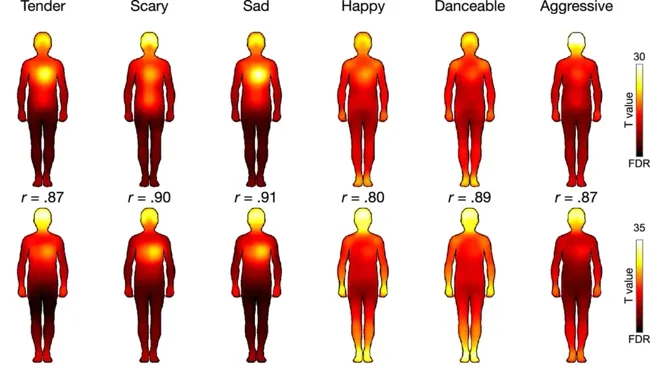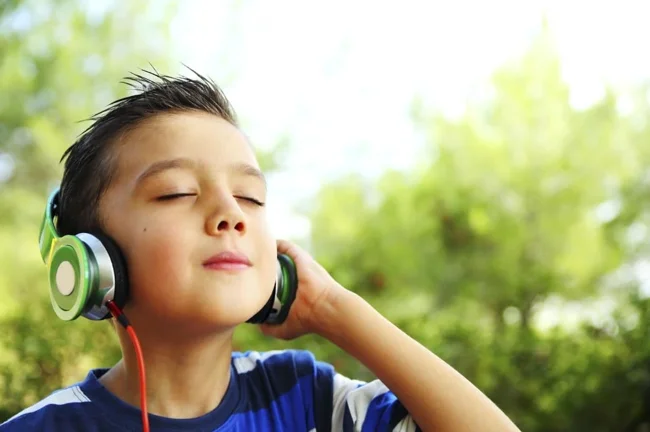Finnish scientists have discovered where music is felt in the body (3 photos)
Whether it's a lyrical love song or a catchy hit, music has the unique ability to evoke emotions in people. Scientists from the research university Turku PET Center were able to determine where in our body the response to a particular melody occurs. No wonder sad songs make your chest feel tight 
Music is often called "the universal language that everyone speaks." Finnish scientists wondered what bodily sensations music evokes in different cultures. IN
The study involved 2,000 people from Western countries and China.
Participants were shown a silhouette of a person and asked to indicate which area of the body they thought was activated in response to different styles of music. 
top row - Western countries, bottom - China
The results showed that styles of music evoked different bodily sensations.
Sad, lyrical songs are felt in the chest and stomach, and scary or aggressive songs make the blood rush to the head. Joyful, rhythmic melodies create a feeling of energy in the arms and legs.
The researchers also found that emotions and bodily sensations were similar between Western and Asian listeners. 
"Rhythmic music was perceived as joyful and danceable, while dissonance in music was associated with aggression. Because these feelings are similar across cultures, the emotions evoked by music are independent of culture and are based on inherited biological mechanisms," said Professor Lauri Nummenmaa.
The results suggest that music emerged as a way to enhance social interaction.
"In all cultures, people dance to music, and synchronized postures, movements and vocalizations are a universal sign of belonging. Music may have emerged during human evolution for social interaction and a sense of community," Dr. Putkinen concluded.
